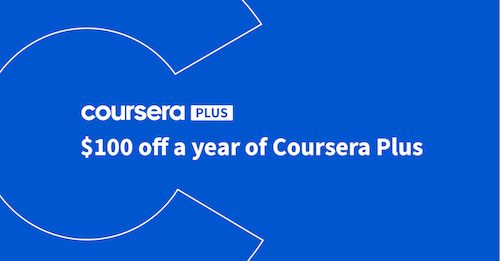These days the term multimedia sounds thoroughly passé, like the apotheosis of the 1990s techno-cultural buzzword. But perhaps it also refers to a dimension of art first opened in that era, of a kind in which trend-chasers dabbled but whose potential they rarely bothered to properly explore. But having established herself as a formally and technologically daring artist long before the 1990s, Laurie Anderson was ideally placed to inhabit the multimedia era. In a way, she’s continued to inhabit it ever since, continually pressing new audiovisual platforms into the service of her signature qualities of expression: contemplative, articulate, highly digressive, and finally hypnotic.
Anderson’s commitment to this enterprise has brought her no few honors. Biographies often mention her time as NASA’s first (and, it seems, last) artist-in-residence; more recently, she was named Harvard University’s 2021 Charles Eliot Norton Professor of Poetry. This position entails the delivery of the Charles Eliot Norton Lecture, a series meant to deal with poetry “in the broadest sense,” encompassing “all poetic expression in language, music, or the fine arts.”
Norton lecturers previously featured here on Open Culture include Leonard Bernstein, Herbie Hancock, and Jorge Luis Borges. “I am pretty sure that the Norton committee at Harvard made an enormous mistake when they asked me to do this lecture series,” Anderson told the Harvard Gazette, “and it was really my own sense of the absurd that made me want to say yes.”
Few could seriously have doubted Anderson’s ability to rise to the occasion. She did, however, face a unique challenge in the history of the Norton Lectures: delivering them on Zoom, that now-ubiquitous video-conferencing application of the COVID-19 era. Despite belonging to a generation not all of whose members demonstrate great proficiency with such technologies, Anderson herself appears to have taken to Zoom like the proverbial duck to water. Such, at least, is the impression given by “Spending the War Without You: Virtual Backgrounds,” her six-part Norton Lecture series now available to watch on Youtube. Its subtitle hints at one feature of Zoom of which she makes rich use — but hardly the only feature.
Throughout “Spending the War Without You,” Anderson also superimposes a variety of virtual faces over her own: Sigmund Freud, Gertrude Stein, Loni Anderson, and even her musical collaborator Brian Eno. This sort of thing wouldn’t have been possible even in the longtime fantasy she cites as an inspiration for these lectures: hosting a radio show at 4:00 a.m., “a time when reality and dreams just sort of merge and it’s hard to tell the difference between them.” That’s just the right headspace in which to listen to Anderson make her elegantly spaced-out way through such topics as her life in New York, tai chi and meditation, language as a virus, the death of John Lennon, the culture of the internet, Catherine the Great, the combination of sound and image, The Wind in the Willows, non-fungible tokens, and American cheese. Taking advantage of her digital medium, she also plays the violin, explores virtual realms, and dances alongside her younger self.
The collision of all these elements feels not unlike Good Morning, Mr. Orwell, Nam June Paik’s television broadcast of New Year’s Day 1984. Anderson also took part in that project, sharing with Paik an artistic willingness to embrace new media. “I’ve almost always been a wirehead,” she says in these lectures 38 years later. “But it’s become a nightmare in some ways, with people attached now to their devices, with a death grip on their phones. At the same time, it’s the same machine that created celebrity culture.” Looking back on a “humiliating” clip of herself and Peter Gabriel performing on Good Morning, Mr. Orwell, she recalls her state of mind during the commercial and technological onrush of the 1980s: “Everything was moving fast, and I just wasn’t thinking. That’s my excuse, anyway.” See the full lecture series here, or up top. The lectures will be added to our collection: 1,700 Free Online Courses from Top Universities.
Related Content:
Hear Laurie Anderson Read from The Tibetan Book of the Dead on New Album Songs from the Bardo
Lou Reed and Laurie Anderson’s Three Rules for Living Well: A Short and Succinct Life Philosophy
Jorge Luis Borges’ 1967-8 Norton Lectures On Poetry (And Everything Else Literary)
Herbie Hancock Presents the Prestigious Norton Lectures at Harvard University: Watch Online
Leonard Bernstein’s Masterful Lectures on Music (11+ Hours of Video Recorded at Harvard in 1973)
Based in Seoul, Colin Marshall writes and broadcasts on cities and culture. His projects include the book The Stateless City: a Walk through 21st-Century Los Angeles and the video series The City in Cinema. Follow him on Twitter at @colinmarshall or on Facebook.
Laurie Anderson Turns Zoom Into an Art Form: Watch Her Hypnotic Harvard Lecture Series on Poetry, Meditation, Death, New York & More is a post from: Open Culture. Follow us on Facebook and Twitter, or get our Daily Email. And don't miss our big collections of Free Online Courses, Free Online Movies, Free eBooks, Free Audio Books, Free Foreign Language Lessons, and MOOCs.







0 Commentaires